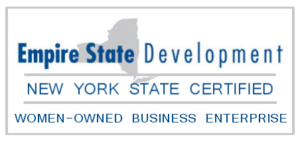It used to be nearly impossible to reopen a claim based on a defense of labor market attachment when a unemployed claimant had been classified with having a Permanent Partial Disability and entitled to ongoing benefits. Although there are still challenges in getting these claims reopened on the issue of labor market attachment, the Board has articulated circumstances under which a claim involving ongoing PPD benefits to a claimant who is not working can be reopened on the issue of labor market attachment.
When an employer or carrier wants to challenge ongoing PPD benefits, simply sending out job search letters will likely not be sufficient to reopen a claim on the issue of labor market attachment.
Here’s what the Board looks at when reviewing an RFA to reopen a PPD claim:
While a claimant’s failure to respond to a work search inquiry without something more may not constitute sufficient evidence of a triable issue of fact upon which a reopening may be based, a claimant’s response, or lack thereof, to other communications from the employer or its carrier may meet the employer’s burden of producing evidence that something other than a claimant’s disability is the reason for the post-classification loss of wage earning capacity. These communications include, but are not limited to:
- An employer’s offer of light duty work within the claimant’s medical restrictions, or
- An actual offer of retraining or job search assistance by a firm in the business of providing such services.
An unemployed claimant’s failure to respond to such offers, or an unexplained rejection of such offers, raises an issue of fact that something other than the claimant’s disability may be the reason for the continued loss of wages.
(For an employed claimant – evidence of claimant’s retirement, leaving a light duty job, or a change in the claimant’s condition may also raise a triable issue of fact sufficient to reopen the case.)
Simply sending a letter indicating that the carrier or employer is willing to provide such services does not appear to be sufficient. Based on the Board Panel decisions, the offer of assistance must an actual offer of retraining, or a specific offer of job search assistance through a company which provides such services, not simply an indication that the carrier will offer such services.
Thus, the likely best practice if a carrier or employer wants to challenge a PPD claimant’s entitlement to ongoing benefits is to retain a retraining or job search assistance company and have the company send a correspondence to the claimant detailing the services that will be provided. Of course, the letter should be simultaneously copied to the Claimant’s attorney. Simultaneously sending job search letters may bolster an eventual RFA-2 on the issue of labor market attachment. All such submissions must comply with Rule 300.23(c)(1).
A carrier or employer may want to weigh the chances that such an individual could make a claim for a total industrial disability when challenging his or her entitlement to PPD benefits. Thus, having a vocational firm perform a preliminary assessment of the claimant’s employability may be advisable before making a decision to employ this kind of strategy. Additionally, carriers and employers should be mindful that the disability rate at which a claimant is being paid may be lower than an actual reduced earnings rate if the claimant’s wage earning capacity is significantly compromised and he or she successfully returns to work.
If an employer or carrier is prepared to actually help a claimant find work by utilizing a retraining or job search assistance company, both it and/or the claimant may benefit – either through a defense based on labor market attachment, or, the panacea of good results for an industrially disabled individual, through a job which accommodates the employee’s Permanent Partial Disability.

